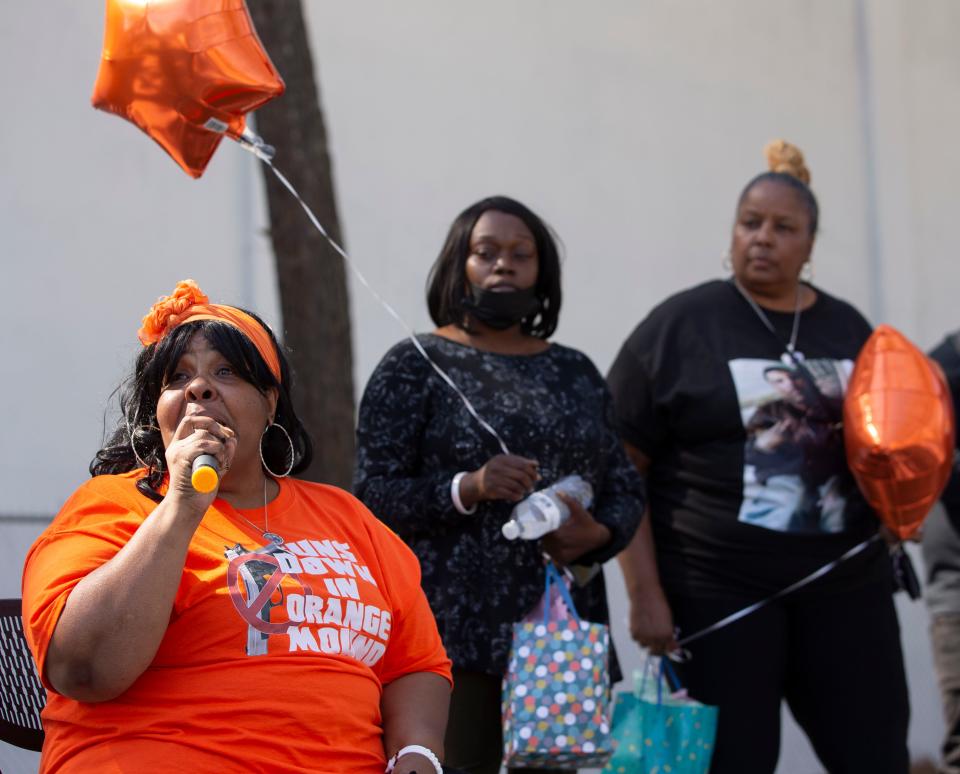Violence is not just a criminal justice problem, it's a public health issue too | Opinion
Violence is in our neighborhoods, in our city and on our daily local news. Violence has become part of our lives in Memphis.
Last year, in Memphis and Shelby County, there were 4,291 major violent crimes such as homicides and assaults, that’s about 12 cases per day.
All along, as a doctor and a public health expert, I had thought that violence is the purview of our criminal justice system. Individuals who break laws and commit an offense must face the consequences.
Such is our thinking when we frame violence purely as a criminal justice issue.
What if we were wrong in such regimented thinking? What if violence was not just a criminal justice problem but a public health problem? Does that change anything?
In fact, I will argue, it changes everything.
Hear more Tennessee Voices: Get the weekly opinion newsletter for insightful and thought provoking columns.
Root causes of criminal behavior often emanate from trauma
Take an example of a 65 year old man who comes into the emergency room with excruciating chest pain. His EKG revealed large S-T elevations, a telltale sign of a massive heart attack. The attack did not just happen randomly but was precipitated due to underlying factors: chain smoking, fatty food, lack of exercise, non-compliance with blood pressure meds, and excessive stress.

Overlooking these factors and then looking at the heart attack in isolation would amount to grossly misunderstanding the situation.
The criminal system does look at previous offenses, but to build a stronger legal case against a criminal. A public health perspective sees previous incidences as early signs of an impending violent act, an opportunity for prevention.
When one looks at root causes then social determinants such as poverty and childhood trauma, physical determinants such as addiction and financial or job insecurity as well as mental/psychological determinants such as depression, loneliness and mental insecurity become significant. Often one underlying issue, uncontrolled anger, plays a major role in violent crimes. Studies have found that the majority of violent crimes are rooted in uncontrolled anger.
Sign up for Black Tennessee Voices newsletter:Read compelling columns by Black writers from across Tennessee.
Why reframing violence is critical
In the article “Fear-Based Anger is the Primary Motive for Violence” the well-known criminologist Dr. Scott Bonn, talks about anger being an intoxicant altering our mental and hormonal state and often this is based on underlying fear. Ironically, it is fear that is the driving force among criminals.
Reframing violence is critical and consequential because it helps us towards the right solutions.
Framing violence as a public health problem (just as we framed alcoholism) does not relieve the criminal of the offense rather reframing recognizes the causative agents in a criminal’s life, which can be prevented.
Thinking in a public health framework we prioritize preventative solutions, rather than punitive solutions. We look at solutions such as anger control among the at-risk teenagers with minor offense as a harbinger of a murder in the making. We look at prisoners as an opportunity for rehabilitation. We see violence as a contagious problem.
Our spiritual and guiding leaders have told us, violence begets violence and violence does not end with revenge. Violence ends with rehabilitation. This is not to say that justice does not need to be served for the crime. Punishment has to be packaged with reformation or else we have not stopped the cycle of violence. I believe, people are capable of changing, not all, but most. We need to judge each person as to what their capacity is for change.
Sign up for Latino Tennessee Voices newsletter:Read compelling stories for and with the Latino community in Tennessee.
Citizens have the ability to solve violence, but it will take time
I am not alone in thinking that violence is a public health issue. In 1979 Surgeon General report identified violence as a priority area in public health. In this foundational document, Dr. David Satcher stated that "the key to preventing a great deal of violence is understanding where and when it occurs, determining what causes it, and scientifically documenting which of many strategies for prevention and intervention are truly effective." A paper in 2018 the American Public Health Association clearly states “Violence is a Public Health Issue: Public Health is Essential to Understanding and Treating Violence in the US.”
We can and need to increase our police force. Yet, these are short term solutions like bandages to stop the bleeding. This will do little to stop the upstream causes of violence. So how can this reframing help us?
Recently, when Arun Gandhi, the grandson of Mahatma Gandhi, the apostle of nonviolence, came to Memphis at the invitation of the director of Library Keenon McCloy, he endorsed an idea of a Gandhi-Nonviolence professorship at University of Memphis. He planted a seed towards more nonviolent projects in our community. More at www.gandhiking.org
The solution to the violence and crime in our city lies with us. There are no quick fixes. It took us decades to get into this problem of violence. It will take years to get better, as we properly frame the problem and the solutions.
Manoj Jain, M.D., is an infectious disease doctor and founder of the Gandhi-King Conference in Memphis since 2004. www.gandhiking.org
This article originally appeared on Memphis Commercial Appeal: Violence is both a criminal justice and a public health problem

